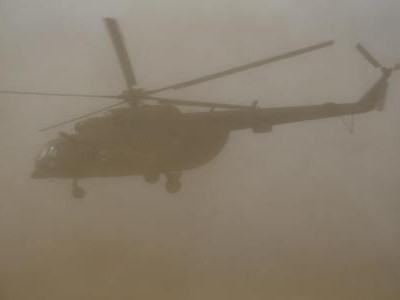On 21 April, an agreement concluded nine days earlier in Moscow between the Cameroonian Defence Minister Joseph Beti Assomo and his Russian counterpart Sergei Choigou was released.
The content of the 13-page document is quite vague, mentioning the exchange of information in the field of international defence and security policy, military education, military hydrography and medicine. This new episode of Russia’s diplomatic offensive in Africa, in the aftermath of the invasion of Ukraine and subsequent Western sanctions, follows the refusal from many African countries, Cameroon included, to condemn Moscow at the UN General Assembly.
The treaty, which has an initial duration of five years with an option to renew it for another five years, also comes seven years after an agreement signed on 15 April 2015. The latter was furthering the supply of Russian weapons, including artillery, missiles, and armoured trucks, as well as the training of Cameroonian military officers. Interestingly enough, this first agreement came not so long after the first Russian offensive in Ukraine, in a similar context of general Western condemnation against Moscow.
The presence of Russia in Cameroon, just as in many other African countries, tends to become more pervasive. While there is no proof of the presence of the private Russian militia Wagner in Cameroon for now, their deployment in the country could follow soon, given the multiple security challenges faced by Yaoundé, facing both Boko Haram terrorists in the North and the Ambazonia guerrillas in the West.
Not to mention the demonstrated Russian influence campaigns on social media which have been taking place in Cameroon and elsewhere in Africa, particularly emphasizing anti-Western and anti-France narratives. While this growing influence is the object of heated debates in the population, with pro- and anti-Russians, it sometimes leaves the government in a delicate situation. For example, when some Ministers recently have to concede publicly that the wheat shortage and dramatic increase in the price of bread currently experienced in the country was the result of the war in Ukraine.
Comments from knowledgeable observers tended to consider this agreement as a way for the Cameroonian government to sustain its military fight against Ambazonian secessionists in the so-called Southern Cameroon, the country’s military being stretched thin after years of fight. On Twitter, the former US Undersecretary to African Affairs in the Trump administration and ex-ambassador to several Guinea and Ethiopia declared that the agreement was untimely, and implicitly indicated that the US would support Ambazonians against Russian mercenaries.
It remains to be seen, however, whether Russia will indeed get involved in this territorial ethnic conflict, and if so, through what channels. In 2013, the country had already provided Cameroon with several Mi-17 multirole military transport helicopters. According to the writer of Foreign Policy’s weekly Africa Brief Nosmot Gbadamosi, the agreement commits Russia to sell armoured trucks to Cameroon. She claims however that such a rapprochement is not meant to substitute ties to France and the West, but rather to add up on top of them, Yaoundé being just as much in search of means to strengthen its political stability as to uphold its domestic military efforts.
 Eurasia Press & News
Eurasia Press & News



